- Home
- J. G. Ballard
Empire of the Sun Page 28
Empire of the Sun Read online
Page 28
Already they had collected their first booty. A silver parachute canister lay like a bomb on the floor of the truck, dwarfing the dark-eyed children in their Chinese tunics. Jim watched from Basie’s window in E Block, smiling contentedly as Tulloch and Lieutenant Price climbed down from the roof of the guardhouse. They strolled over to the gates but made no attempt to unlock them. A rambling argument ensued between Price and the former Lunghua prisoners, who pointed angrily at E Block, deserted now except for the fourteen-year-old boy laughing to himself at the top-floor window.
Jim drummed his fists on the concrete sill, and waved to the men and their glowering Chinese wives. After three years of trying to leave the camp they were now back at its gates, ready to take up their stations for World War III. At long last they were beginning to realize the simple truth that Jim had always known, that inside Lunghua they were free.
The gates were opening; a bargain had been struck. Lieutenant Price had taken a fancy to the Opel. Within a minute the two Britons and their families sped across the parade ground towards D Block, followed by the first Mustangs of the morning. As they soared over the camp the wash from their engines drove a foul wind through the empty buildings, a reek of offal borne on a plague of thousands of glutted flies.
The Chinese beggars sitting by the gates shielded their faces. But Jim inhaled the heady stench, shutting out his thoughts of the hospital and the dead Japanese airman in the canal beyond the wire. The time had come to forget the dead. In its way the camp was coming alive again. The days of powdered milk and chocolate bars had made him stronger, but not yet equal to the long walk back to Shanghai. Other people would be returning to the camp, and perhaps his mother and father would join him there. Even with the reduced American air-drops there would be a constant supply of food. Jim looked down at the silent kitchens behind the guardhouse, and the rusting collection of metal carts. Already he was thinking of a sweet potato…
His shoes rang through the empty corridors, and down the stone steps. As he raced from the foyer he heard the throbbing engine of the Opel. Tulloch and the Seaforth Highlander were loading parachute canopies and cartons of canned food over the tail-gate.
‘Jim! Hold it!’ Tulloch beckoned to him. ‘Where do you think you’re going?’
‘G Block, Mr Tulloch…’ Gasping for breath, Jim leaned against the Opel’s shaking fender. In the doorway of the guardhouse Lieutenant Price was feeding cartridges into the ammunition clip of his rifle, the ritual of a man counting his secret gold. ‘I want to reserve a room for my parents – they might be coming to Lunghua. I’ll reserve a room for you, Mr Tulloch.’
‘Jim…Jim…’ Tulloch placed his hand on Jim’s head, trying to steady the over-excited boy. ‘It’s time you found your father, lad. The war’s over, Jim.’
‘But the next war, Mr Tulloch. You said it’s going to begin soon.’
The Packard mechanic helped Jim on to the floor of the truck. ‘Jim, you need to get the last war over before you start the next. We’ll give you a lift – you’re going back to Shanghai!’
38
The Road to Shanghai
The truck careened from one side of the Shanghai road to the other, throwing Jim on to the agitated bundle of parachute silk. He clung to the cartons of K-rations stacked around him, and listened to Tulloch and Lieutenant Price shouting to each other above the bellows-like roar of the engine.
Through the fading camouflage on the rear window, Jim could see the policeman’s bandaged hands, deliberately raised from the wheel as he allowed the speeding truck to wobble and drift from the centre of the road. The tyres reached the verge, ripping up a storm of dust and leaves. Tulloch sat in the passenger seat beside the jar of rice wine, holding the rifle through the open window. He pounded on the dented hood, as the apartment blocks of the French Concession appeared between the bomb-torn trees.
For all the dangers of Lieutenant Price’s driving, Jim was glad that the two men were in such high spirits. For the first mile the lieutenant had been unable to find second gear, and they had laboured along the Shanghai road at a noisy walking pace that threatened to boil the water from the radiator. Then an air-drop at Hungjao brought back Price’s driving skills. They hurtled along the farm tracks and canal embankments, following the parachutes towards the landing ground, cheered by the prospect of even more American merchandise to be sold in the black markets of Shanghai.
Others, however, had reached the treasure before them. For half an hour they trundled around the deserted paddy fields, unable to find a single parachute canister. Price waved his rifle, threatening an entire world of silent canals.
Fortunately, Price’s anger soon abated. After returning to the Shanghai road the lieutenant steered the truck towards the body of a dead Japanese despatch rider lying beside a motorcycle. The dead man’s head burst in a spray of bloodied maggots and brain tissue that drenched the roadside trees. This feat of steering put Price in an excellent mood, which Jim hoped would last long enough for him to reach Shanghai and jump from the truck at the first traffic lights.
Jim looked back at the distant rooftops of the camp. It was strange to be leaving Lunghua, but he realized that once again he had been imprisoned by the camp as he had been during the war. At a single word from Tulloch, the apparently secure world he had begun to rebuild for himself out of one small room and a few tins of Spam had collapsed at his feet.
They passed Lunghua Pagoda at the northern edge of the airfield, the barrels of its anti-aircraft guns still pointing to the sky. Jim searched the ruined hangars for any sight of the young kamikaze pilot, sorry that he had never been able to repay him for the mango. A mile to the east was the Olympic stadium at Nantao. The Chinese characters on the shell-pocked façade, celebrating the generosity of Generalissimo Chiang, rose ever more vividly above the parking lot, as if China’s feudal past had returned to claim its time.
The truck swerved, skidding across the camber. On a whim, Lieutenant Price had turned on to a mud track that ran towards the stadium. Jim heard Tulloch protest, but then the wine jar was passed across the steering wheel. They sped between the first of the earth bunkers and rifle pits that guarded the former Japanese headquarters. Lines of crumbling tank ditches crossed the fields, their slopes strewn with webbing and ammunition boxes.
Jim lay back on the bale of parachute silk. He had known all along that the sight of the Olympic stadium would prove too large a temptation. Since his arrival at Lunghua Camp the group of Britons had never ceased to question him about the looted furniture in the stands. Jim had been forced to embroider his memories, in order to ensure his supplies of canned goods and magazines from the commandant’s office. By now his make-believe had seized Price’s imagination, and it was too late to turn back.
A hundred yards from the parking lot they left the road and stopped in a culvert between two tank-trap embankments. Price and Tulloch, both drunk on the rice wine, stepped from the driving cabin. They lit cigarettes, staring slyly at the stadium.
Price tapped the side of the truck with his rifle. In a mocking voice, he called out: ‘Shanghai Jim…’
‘Just a detour, Jim,’ Tulloch assured him boozily. ‘We’ll pick out a case of Scotch, and a few fur coats for the girls in the Nanking Road.’
‘I didn’t see any fur coats, Mr Tulloch, or any Scotch. Lots of chairs and dining tables.’
Lieutenant Price pushed Tulloch aside. ‘Dining tables? Do you think we came here to have lunch?’ He stared at the façade of the stadium, as if its shabby chalk challenged his own pallid skin.
Jim avoided the rifle barrel aimed at his head. ‘There were cupboards and wardrobes.’
‘Wardrobes?’ Tulloch swayed between them. ‘That could be it, Lieutenant.’
‘Right…’ Price calmed himself. He touched the cigarette burns on his chest, tapping out a secret code of pain and memory. ‘I told you the boy had his eyes open.’
The two men crossed the road and entered the parking lot. Price leaned against a trackless t
ank, and spat the prison phlegm from his lungs through an open hatch. Jim hung back among the lines of trucks, thinking of Mr Maxted. Was he still lying on the blood-stained grass? Having eaten so much, Jim felt guilty, and remembered that he might have sold his shoes. For all the looted cocktail bars it contained, the Olympic stadium seemed sombre and threatening, a place of omens. Here he had seen the afterglow of the atomic flash at Nagasaki. Its white glare still lay over the road of their death-march from Lunghua, the same pale light that he could see in the chalky façade of the stadium and in Lieutenant Price’s lime-pit skin.
Fanning away the flies with a copy of Life, Jim sat on the running board of a truck. He studied a photograph of American marines raising the flag on the summit of Mount Suribachi after their battle for Iwo Jima. The Americans in these magazines had fought an heroic war, closer to the comic books than Jim had read as a child. Even the dead were glamourized, the living’s idea of the dead…
Two Mustang fighters flew overhead, leading a Superfortress that lumbered in from the west, its bomb doors open, ready to scatter its Spam and Reader’s Digests across the empty fields. The engines drummed at the ground below Jim’s feet, shaking the lines of derelict vehicles.
Jim lowered the magazine, and noticed that armed men were running from the entrance tunnel of the stadium, their voices drowned in the noise of the aircraft. The Superfortress ambled through the sky, but the men scattered in panic from the tunnel, as if expecting the stadium to be bombed. A bearded European in the leather jacket of an American pilot raced across the parking lot, followed by two more men carrying shotguns. A bare-chested Chinese with a pistol belt around his black trousers scuttled along at a crouch, leading a group of coolies with bamboo staves.
Pursuing them through the tunnel was a platoon of Nationalist soldiers, rifles raised to the strong sunlight. They stopped to fire at the fleeing men, letting off a ragged volley of shots. Jim opened the door of the truck and climbed into the driving cabin. Fifty feet from the entrance tunnel Tulloch lay in the white dust that had fallen from the façade of the stadium. Lieutenant Price ran past him towards the line of trucks, his face like a lantern scanning the ground. Shaking off his bandages, he leapt the perimeter wall of the parking lot and plunged into the flooded paddy field beyond the road.
The Chinese officer fired a last pistol shot at Price’s splashing figure, then knelt in the stadium entrance. Rifles raised, his men approached the rusting vehicles. They made a token show of flushing out any wounded members of the raiding party, turned and retreated to the safety of the stadium. Tulloch lay dead in the sun, his blood leaking into the chalky dust.
Blue and scarlet parachutes were falling over Hungjao. Jim slid across the seat, opened the door on the far side of the cabin and slipped on to the ground. Screened by the ammunition wagons and field guns, he ran towards the perimeter wall.
Lieutenant Price had abandoned the Opel and its cargo of silks and K-rations. When Jim reached the culvert he found the truck standing alone among the anti-tank embankments. On the ground beside the passenger door a faint smoke still rose from the butt of Tulloch’s last Lucky Strike.
Jim stared through the window at the instrument panel. Could he drive the vehicle to Shanghai? It was too dangerous to give himself up to the Nationalist soldiers at the stadium – they would shoot him on sight, taking for granted that Jim was a member of the raiding party.
Thinking of Tulloch, who had died before seeing the white Cadillacs of Nantao, Jim decided to walk to Shanghai. He was climbing over the tail-gate of the Opel, about to select several cans of food and copies of the Reader’s Digest, when he heard footsteps beside the truck. Before he could turn, someone seized him by the shoulders. Hard fists punched the back of his head, and hurled him to the floor.
Sitting among the cartons of cigarettes, Jim felt the blood run from his nose and mouth, dripping through his hands on to the parachute canopy. He looked up at the bare-chested Chinese with the pistol belt who had raced from the stadium. He stared at Jim with the expressionless gaze he had often seen on the cook’s face at Amherst Avenue before he killed a chicken. Behind him, impatient to get his hands on the truck’s cargo, was a Chinese coolie with a bamboo stave.
On both sides of the culvert armed men were walking down the embankment, led by the bearded European in the leather flying jacket. Half the members of this bandit group were Chinese, some of them coolies with staves, others in Nationalist and puppet uniforms, still with their rifles and webbing. The others were Europeans or Americans, wearing an assortment of clothes and ammunition belts, holsters and Shanghai Police pouches hung over Chinese tunics. From their starved bodies, Jim assumed that most were former internees.
When the coolie raised the bamboo stave, Jim sucked back the blood and swallowed the hot phlegm. ‘I’m going to Lunghua Camp…I’m a British prisoner.’ He pointed to the south-west. Through his swollen nose his voice sounded strangely bass, as if his body were ageing in the few moments of life left to it. ‘Lunghua Camp…’
Ignoring him, the armed men sat on the embankment and smoked their cigarettes. The European in the flying jacket paced around the truck. A coolie picked up Tulloch’s cigarette butt and inhaled the smoke. Everyone watched the sky and the deserted road past the stadium. They had brought with them the slow, empty time of the prison camp. Their faces were drawn and colourless, and they seemed to have emerged from a deep lair below the ground.
‘Lunghua…’ Jim repeated. The coolie with the stave still had his eyes on him. At the smallest signal, Jim knew, the coolie would step forward and crush his skull. The bare-chested Chinese who had struck him was examining the truck, peering at the rear tyres. Hoping somehow to catch the attention of the Europeans, Jim pointed to the stadium. ‘Lincoln Zephyrs – in Nantao. Buicks, white Cadillacs…’
‘What’s this talk about Cadillacs?’ A small man with silvery hair and an effeminate American voice walked towards the truck, rifle slung over his shoulder. No one listened to him, and he lit a cigarette to cover the lack of response. The flame trembled in his powdered cheeks, exposing a familiar pair of wary eyes, with their sharp but modest focus.
‘Basie!’ Jim wiped the blood from his nose. ‘It’s me, Basie – Jim! Shanghai Jim!’
The cabin steward stared at Jim. After a moment’s thought he shook his head in an almost formal way, as if recognizing the fourteen-year-old but no longer interested in him. He scanned the cartons of K-rations and fingered the silk of the parachute. He stepped aside to give the coolie more room to swing his stave.
‘Basie!’ Jim picked up the scattered magazines and cleaned the blood from their covers with his fingers. He held them up before the angry gaze of the bare-chested Chinese with the pistol. ‘Life magazine, Basie, Reader’s Digest! I kept the latest copies for you…Basie, I’ve learned hundreds of new words – Belsen, von Rundstedt, GI Joe…’
39
The Bandits
The car sped along the shore of an oil-filled lagoon, past the rusting hull of a beached torpedo boat. Squeezed between Basie and the bearded Frenchman in the rear seat, Jim watched the spray leap from the wheels of the Buick. The lurid rainbows opened like peacock tails, transforming the distant office blocks of Shanghai into the towers of a paintbox city. The same gaudy light veiled the torpedo boat and cloaked the bodies of the dead Japanese lying in the shallows.
Jim tried to look over his shoulder at the receding skyline of Shanghai, but the bruises on his neck made it difficult for him to turn his head.
‘Hey, boy…’ The Frenchman struck Jim’s arm with the carbine held between his knees. ‘Settle down. You want some more bloody nose…?’
‘Jim, there’s no room to wresde in here. We’ll just sit quiet and learn our words.’ Basie put an arm around him. ‘Keep an eye on that Digest so you stay awake.’
‘Right, Basie. I’ll stay awake.’
Staying awake was all-important, as Jim knew. He propped his feet against the ammunition boxes on the floor of the car, then
pinched his lips until his eyes brightened. Next to the Frenchman, against the right-hand passenger door, sat the coolie with the bamboo stave who had been about to kill Jim before Basie intervened. In the front seat beside the Chinese driver, were two Australians from Siccawei Camp.
The seven of them were packed into the mud-spattered Buick. Its windows were still adorned with the insignia and rice-paper stickers of the puppet Chinese general whose staff car this had been throughout the war. Dried vomit, blood from Jim’s nose and from the wounds of injured men stained the seats. Along with the staves and weapons, the car was crammed with ammunition boxes, cartons of American cigarettes, earthenware jars of rice wine, and beer bottles into which the men continually urinated as they sped along the country roads to the south-west of Shanghai.
They came to a halt, and the oily water of the lagoon swilled around the Buick’s wheels. Ahead of them was the Japanese truck carrying a dozen members of this bandit gang. The top-heavy vehicle swayed up a narrow ramp of grey bricks that led from the beach to the embankment road. It was loaded with parachute canisters, Japanese stores seized that morning from the military godowns at Nantao, and a collection of mattress rolls, bicycles and sewing-machines looted from the villages in the open country south of Lunghua.
The Buick climbed the ramp of crumbling bricks, and followed the truck through the clouds of dust that swirled from its wheels. The road ran inland from the lagoon, soon losing itself in a maze of paddy fields and canals. Jim wondered if this bandit group had any idea where it was going, a poisonous shuttle that flicked to and fro across the quilted land. Yet eight hundred yards away, along a parallel road, a second truck sped through the deserted paddies. The antique Opel captured at the Olympic stadium carried the remaining five members of the gang. They had left the seaplane base at Nantao soon after dawn, but somehow had managed to rendezvous within a few minutes of their next objective.

 High-Rise
High-Rise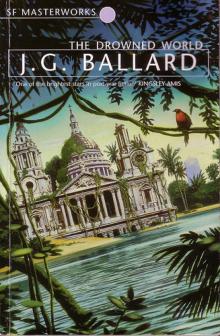 The Drowned World
The Drowned World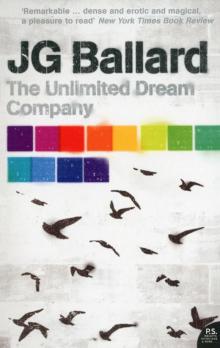 The Unlimited Dream Company
The Unlimited Dream Company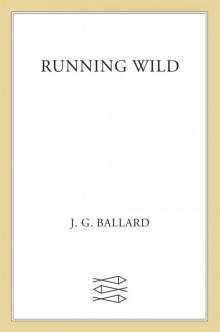 Running Wild
Running Wild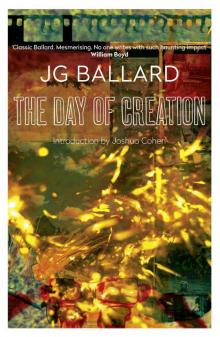 The Day of Creation
The Day of Creation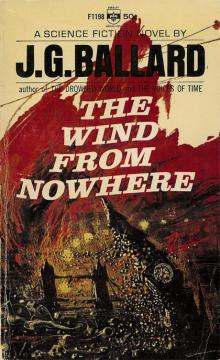 The Wind From Nowhere
The Wind From Nowhere The Complete Short Stories, Volume 2
The Complete Short Stories, Volume 2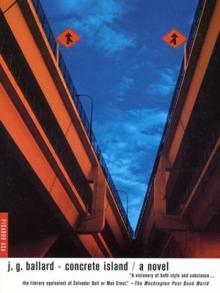 Concrete Island
Concrete Island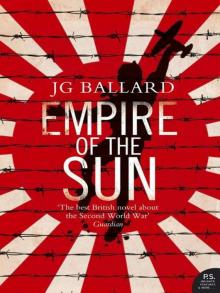 Empire of the Sun
Empire of the Sun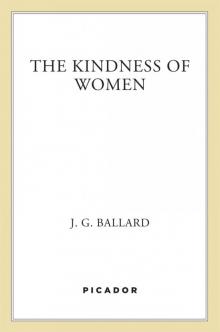 The Kindness of Women
The Kindness of Women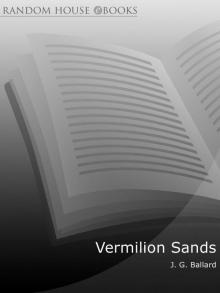 Vermilion Sands
Vermilion Sands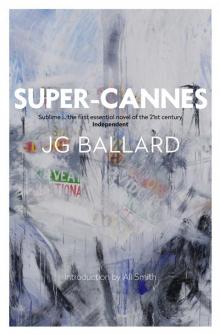 Super-Cannes
Super-Cannes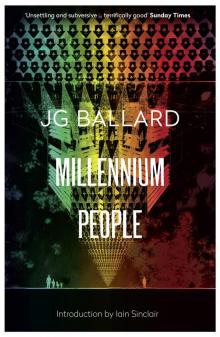 Millennium People
Millennium People The Complete Stories of J. G. Ballard
The Complete Stories of J. G. Ballard Crash
Crash The Drought
The Drought The Atrocity Exhibition
The Atrocity Exhibition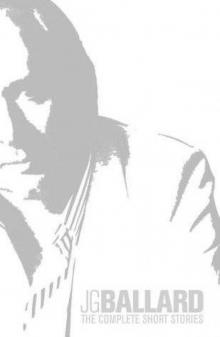 The Complete Short Stories: Volume 1
The Complete Short Stories: Volume 1 Miracles of Life: Shanghai to Shepperton: An Autobiography
Miracles of Life: Shanghai to Shepperton: An Autobiography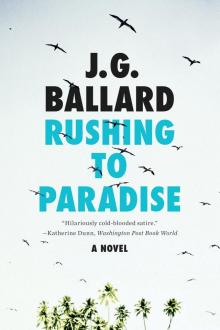 Rushing to Paradise
Rushing to Paradise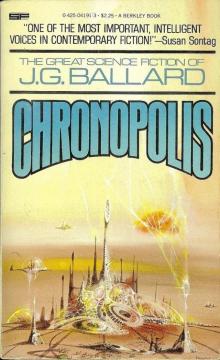 Chronopolis
Chronopolis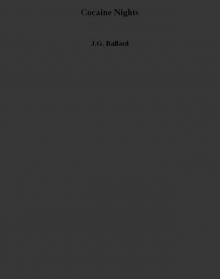 Cocaine Nights
Cocaine Nights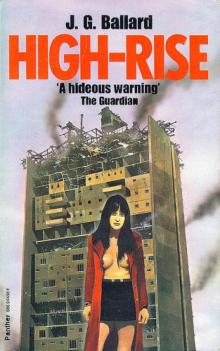 High Rise (1987)
High Rise (1987) The Complete Short Stories
The Complete Short Stories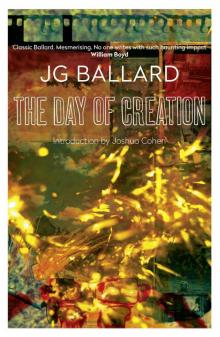 The Day of Creation (Harper Perennial Modern Classics)
The Day of Creation (Harper Perennial Modern Classics)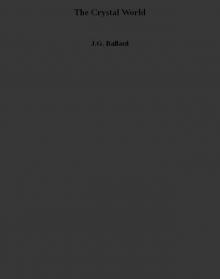 The Crystal World
The Crystal World